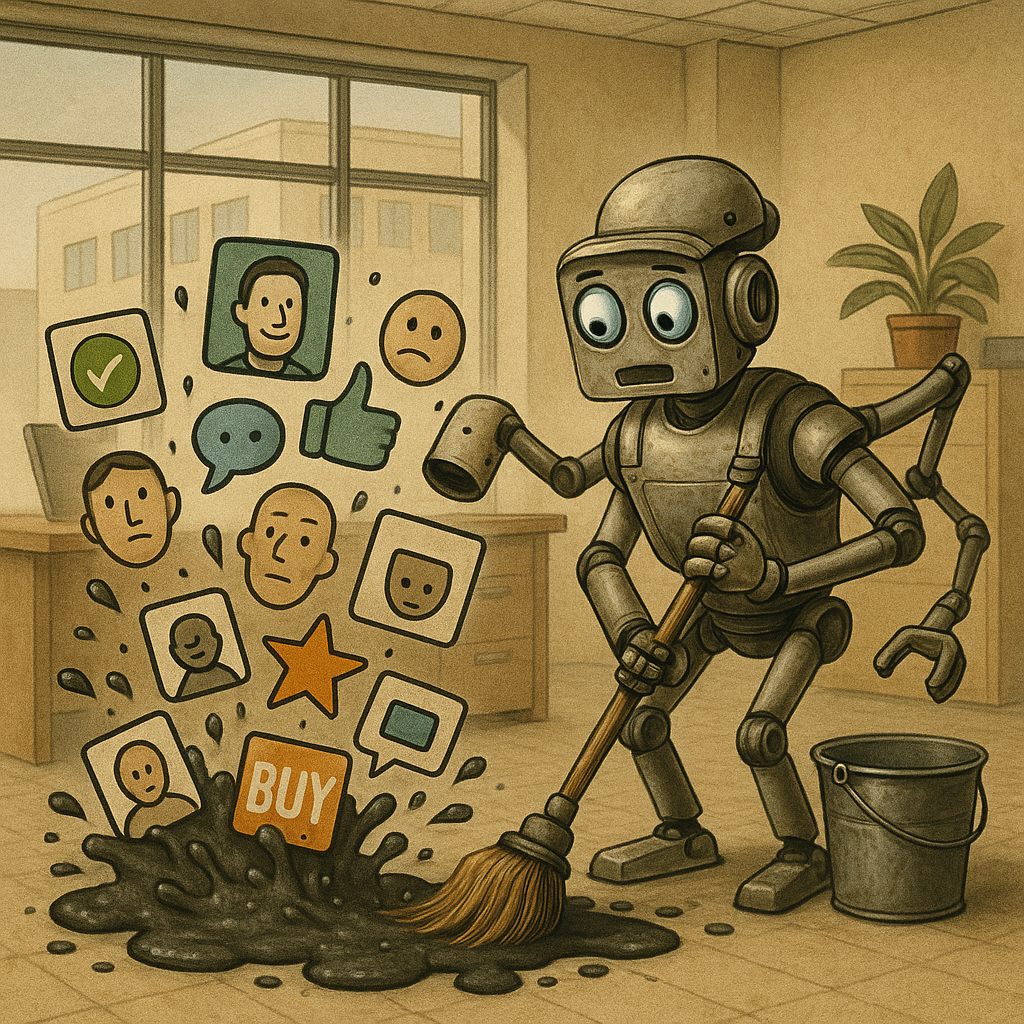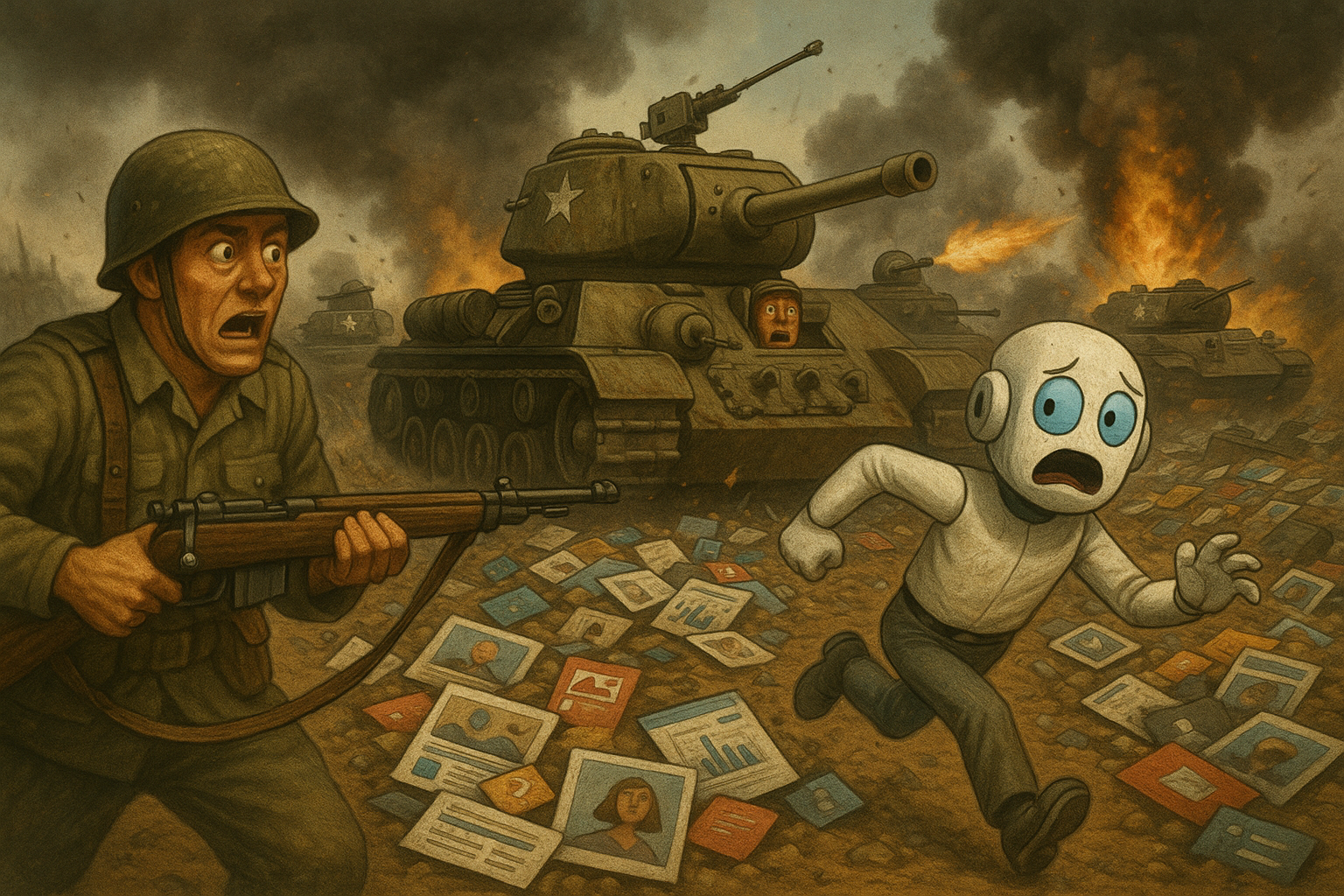Echo Chambers & 8-Fingered People: Your Survival Guide to the AI Slop Era
The term "AI slop" might sound like something you'd avoid at a questionable cafeteria, but it actually describes the wave of low-quality, mass-produced content generated by artificial intelligence. Think of formulaic blog posts, stock images of people with 8 fingers, and videos literally starring AI-based avatars. If you picture the internet as a garden, AI slop would be the stink bug that's giving the garden a funky smell.
Why Is AI Slop Taking Over?
First, there's the return of content farms, now powered by (you guessed it) AI. Where human writers once produced low-quality SEO bait by hand, AI can generate thousands of articles and videos within minutes. This "digital fast food" approach thrives on platforms like YouTube and TikTok, where short, engaging content can quickly turn views into revenue. The issue has grown so large that YouTube itself is preparing to clamp down on repetitive, AI-generated videos.
Another eyebrow-raising factor is the "AI echo chamber," where AI models start learning from content generated by other AI. It creates a loop of digital repetition (or Regurgitated AI-Slop), leading to a gradual decline in content quality and originality.
Spotting the Slop: Real-World Examples
Take YouTube, for example. Endless streams of AI-generated "Top 10" videos with text laid over images that aren't even related to the topic. YouTube’s upcoming policy changes highlight how serious this issue has become, prompting platforms to directly tackle the rising tide of repetitive AI-produced videos.
In the music industry, a band called "The Velvet Sundown" streamed millions of plays before being exposed as entirely AI-generated. While their tunes aren't bad jams (I'm more of a speed metal guy), this type of content can start to undermine genuine creative expression, making it difficult to distinguish between human-created music and AI-created ballads.
Even worse, AI-generated imagery and memes have swamped social media, contributing to misinformation and blurring the lines between what's real and what isn't. Trust in digital media isn't high to begin with, but we could be propelling ourselves into a creative dystopia where there are two types of entertainment: Human Created and AI Generated.
The Serious Side of Slop
Beyond simply cluttering search results, AI slop poses real risks. Genuine creativity could fade away, replaced by predictable and formulaic content. Even worse, these types of content are typically rife with misinformation. I fear the day a simple meme causes some sort of regional violence between two countries. AI slop is intellectual garbage dump of the internet. Search engines clogged with bland, repetitive content make finding valuable insights or genuine creativity (and sometimes news for that matter) much harder. Moreover, future AI systems risk learning from this poor-quality data, potentially leading to even lower quality content in the future.
Tackling the Slop: Solutions to Consider
Thankfully, there are possible solutions. YouTube’s new policy is a positive step; removing financial incentives can help reduce the spread of AI-generated content. Platforms could also adopt clear labeling methods, such as watermarking AI-generated content, to make attribution straightforward.
Adjusting search algorithms to prioritize human-created, high-quality content over machine-generated filler would greatly enhance the digital experience. Some organizations suggest archiving "pure" human-created internet content to preserve authentic data for training future AI models.
Recent court rulings related to copyright infringement, such as Anthropic's fair use battle and the New York Times' legal victory against OpenAI, further highlight the urgency of defining clear legal boundaries around AI-generated content. These decisions could significantly influence the future by either fostering a fair digital landscape or intensifying the spread of AI-generated content.
Final Thoughts: A Call to Action
AI slop is a critical issue. If left unchecked, it threatens to homogenize the internet into indistinguishable, uninspiring content. Protecting originality, nurturing creativity, and maintaining authenticity in digital spaces are not just desirable, they're essential. Unless we address this issue, our digital future could become one giant serving of dull, indistinct content.



